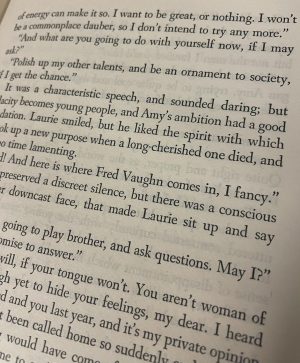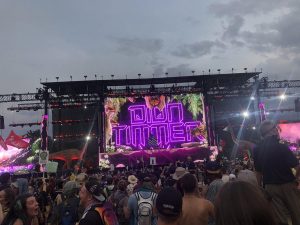#OscarsSoWhite creator visits JCU
Feb 13, 2020
Writer, editor and former attorney April Reign discussed the impact of her viral hashtag, #OscarsSoWhite, in the LSC conference room on Feb. 3. Reign tweeted this phrase in Jan. 2015, following the Oscar nominations announcement, which did not feature anyone of color. The hashtag serves as a call for more diversity at the Oscars and in the entertainment industry in general.
In January 2015, Reign was a practicing attorney and getting ready for work when she watched Chris Hemsworth read off the list of Oscar nominees. In 20 categories, not one person of color was nominated, despite breakout films such as “Selma,” in which David Oyelowo starred as Martin Luther King Jr. and “Belle,” in which Gugu Mbatha-Raw starred as Dido Elizabeth Belle. After listening to the nominees, Reign then posted on Twitter “#OscarsSoWhite they asked to touch my hair.”
“After I posted the tweet, I went to work and checked Twitter around lunch time,” Reign said. “The hashtag was trending around the world. It wasn’t until a couple of days later where the conversation changed from how white the Oscars were to a much larger, broader conversation about the lack of diversity, equity, inclusion and representation in the entertainment industry.”
Reign explained that throughout this journey, she has been misunderstood and misrepresented, but this experience has sparked a purpose for her. When her tweet went viral, she was 44-years-old. She explained that it is never too late to stumble upon one’s purpose.
“One has to make things happen if you want to find your purpose and make changes in the world,” Reign said. “You can do it now. All you need is a purpose and a voice, and both reside in you right now. In 2015, I was like everyone else. I was struck at how homogenous the nominees were both behind and in front of the camera. #OscarsSoWhite speaks to who is telling a story and whose story is being told. There was a problem in search of a solution, and I accepted the challenge. Social media has given me a platform to create change.”
The impact and influence of social media is understood through movements like #OscarsSoWhite, as well as the Black Lives Matter movement, founded in 2013, which campaigns against violence and racism towards black individuals. Reign noted that with social media, people can be mobilized around the country in a few hours, shown through the BLM movement. Pursuing justice in the digital age means more people can be reached at a faster rate. Reign says this generation understands the ability and power of digital communication like no other.
“Change is hard and uncomfortable but it is necessary for progress,” Reign said. “These issues will not be solved in a lifetime or even in a generation. The pursuit of justice is a relay race, not a 100-meter dash. Dr. King was in his 20s when he helped coordinate the Montgomery bus boycott, which lasted for more than a year. Social media and technology were not available in the 50s. Today, we can use social media to our advantage and encourage others to speak up.”
Alongside the benefits of using social media as a means to encourage social justice, Reign discussed the difference between an ally and an advocate. An ally is someone who acknowledges there is a problem, whereas an advocate acknowledges there is a problem and commits to stand for those less fortunate, without the expectation of a reward. As Reign described, an ally is passive and an advocate is active.
“Pick whatever marginalized community you do not belong to,” Reign said. “It is your responsibility to be an advocate for that community. You can make the world a better place. We must pursue justice by any means necessary. Decide what your issue is. Learn your issue backward and forward. Everyone must do their part.”
Following the success of Reign’s movement, she accepted an invitation from the Academy to attend her first Oscars ceremony in 2019. In 2016, the Academy committed to doubling the number of people of color and women in its invitation-only ranks by 2020. The number of people of color increased from 8% to 16% while the number of women increased from 25% to 32%, according to Reign. Today, the Academy is 84% white and 68% male, according to Reign. While progress has been made, Reign says more can be done to ensure that all people are represented on screen.
The 92nd Academy Awards were held Sunday, Feb. 9. Cynthia Erivo is nominated for best actress for her role in Harriet, however, the remaining 19 of the 20 acting nominees are white. Reign says more can be done to change this recurring narrative.
“The change comes from this generation,” Reign said. “The change is whatever you all want it to be. Let’s create change.”











